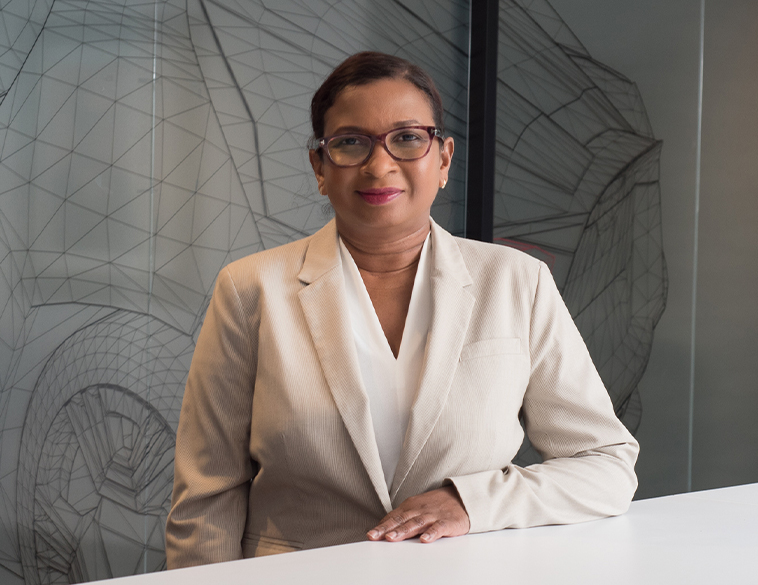Understanding diversity and inclusion in the modern workplace
Equality has become such a prevalent topic today and represents an important pillar of a truly civilized society.
The topic has intimately impacted my life and journey into the auto industry in Canada and I felt it would be good to share my own experiences so that others can gain perspective and possibly benefit from them.
I was born in Guyana, a country situated off the North Atlantic coast of South America.
Culturally, Guyana is related closely to the Caribbean region, with about 30% of the population being of African descent and almost 40% being East Indian.
Where I am from, everyone looks like me. I did not know or understand the word ‘immigrant’ or ‘minority’.
To this day, I struggle with the word ‘minority’ as it just seems so negative and to me discounts who a person is or where they are from.
Move to Canada
In 1982, as a teenager; I moved to Canada.
I grew up in Scarborough, Ontario, and have lived in the area most of my life. In school, I was held back a grade because I came from a different country.
Throughout high school, I was a year older than my peers. This had a lasting impact on me, making it harder to fit in and making me feel like the outsider who was always looking in.
At 17 years old, I remember walking in a parking lot alone, when a car drove up beside me and an occupant yelled ‘go back to your country!’ I was scared. Who wouldn’t be? Unfortunately, 30 years later I still encounter similar experiences.
I first entered the automotive industry after spending 7 years in the mobility sector.
My initial role in this sector was managing multiple call centres that supported both consumers and auto dealers. I remember my first customer-facing experience on day one.
At that time consumers could still place their classified ad at the office kiosk and a customer came in to place an ad for his 1968 Plymouth Barracuda–dark purple with the original black leather seats.
I was so captivated by his story, why he was selling the car, and how beautiful it looked. It was the first time I saw 1968 Barracuda; I was so mesmerized that I got into the car and went on a drive around the block with the stranger.
Although not considered protocol, the experience did trigger a passion to listen to people’s stories and learn from their experiences—something I hold deeply to this today and one that ultimately led to my career in customer service and sales.
Successful career
Today, I’m enjoying what has turned out to be a very successful career in automotive.
I have been working in the space for over 15 years and have been in a number of senior sales and management roles.
I am now part of the leadership team at Canadian Black Book.
I know that everyone’s journey can be difficult, in its own way. Our industry, as we know, is dominated by white males, many of whom are very close friends and associates of mine.
Some of it is due to old standards, but more recently I have seen these traditions begin to change, and in growing numbers, sway towards candidates with more diverse backgrounds.
Throughout my journey in automotive, I have regularly taken positions where I was paid less and received compensation packages that were not as lucrative compared to those given to men at the same level.
On more than one occasion, I was overlooked for a position or promotion that was given to a male colleague with less experience.
This phenomenon is similar in many industries.
And some may say, ‘well maybe that person was better suited for the position.’ All I can say is, we will never know unless all candidates are given a fair and equal opportunity.
Coming together
Yet I feel it is important to talk about this, since it is real and experienced by many people. While everybody’s life and experiences are unique, there are many of us who have struggled with similar issues.
By talking about it and making it known, we can help advance the cause towards solving the problems that exist.
I remember Ruth McBride sharing an experience about getting overlooked for a Director position because she did not have an MBA.
This is common, because many women, like me, were raising young children during the years when most people are completing higher levels of business school. It’s not an excuse, that is simply where our priorities are at that time.
Today it is very encouraging to see that the number of female MBA graduates is now reaching more than 46% versus only 39%, just a decade ago.
The conversation has already begun and is gaining momentum. Having more senior leaders using their various platforms to bring awareness to the topic is a gigantic first step in changing mindsets.
Today, companies are having an internal dialogue, forming committees, and conducting training to better understand diversity and inclusion.
Over the past few years, I have been fortunate to work for a company— Canadian Black Book—that is very diverse. Our parent company allows us to participate in Hearst Business Media Diversity and Inclusion workshops.
Here we learn from the likes of Harvard and Cornell University experts about strategies to help our leaders change organizational culture to become more inclusive.
Each day I am learning that I am not alone. I am also infinitely aware that everyone’s experience, regardless of race, gender, religion, and so on, is unique.
We all have our own stories. As a black woman and a leader in this business, I want to help others and learn from my own experiences. I want to connect with anyone who struggles with inclusion or equality and form a network of support.
Continued efforts
The bottom line is that this conversation must continue if we are to keep building upon the positive momentum we have seen to date.
Seek out and connect with like-minded people, form a bond.
Do not be intimidated or afraid to reach out to those you admire and know have been through similar adversity.
By listening to each other and sharing valuable advice and knowledge is how we all move forward.
In summarizing, I’d like to say that Canada’s auto sector has made great strides related to diversity and inclusion, as have many other industries and sectors of society.
Yet there is still work to be done and by continuing to collaborate; share ideas and take action, we can all help ensure a brighter and more prosperous future for our industry and our society.
Yolanda Biswah is Vice President of Sales at Canadian Black Book.



